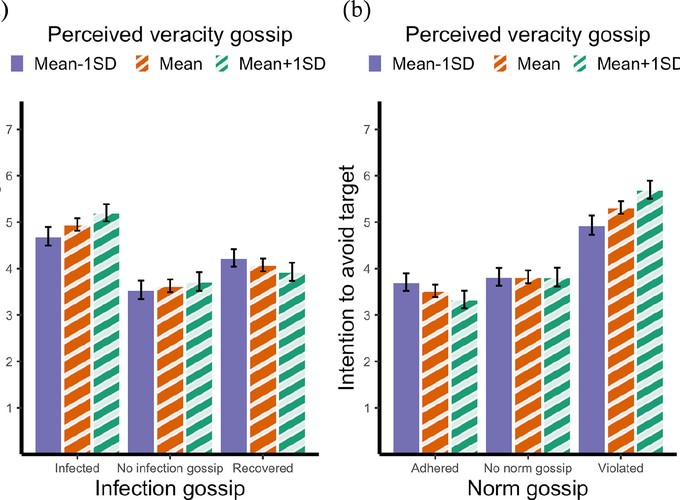Gossip about Coronavirus: Infection status and norm adherence shape social responses

Gossip about Coronavirus: Infection status and norm adherence shape social responses
Abstract
To stop the spread of the Coronavirus, people must avoid infection risk. Given widespread skepticism regarding information concerning the Coronavirus received from authorities, one potentially important pathway to estimate the infectiousness of one’s group members could be through gossip (i.e., information about an absent target). Infection risk is reflected by both infection status and adherence to social distancing norms. In hypothetical scenarios (N = 837), participants received gossip that we manipulated to describe a group member’s infection status and/or norm adherence. Results showed people tended to believe gossip and that gossip influenced behavioral intentions to avoid and punish targets of gossip as well as the perception of targets. We conclude that gossip, while potentially unreliable, could affect how people treat group members. We discuss how gossip could alleviate the Coronavirus crisis by contributing to slowing the Coronavirus’s spread, as well as exacerbate it through increased social exclusion based on unverified information.